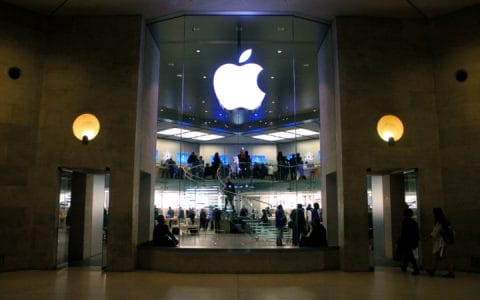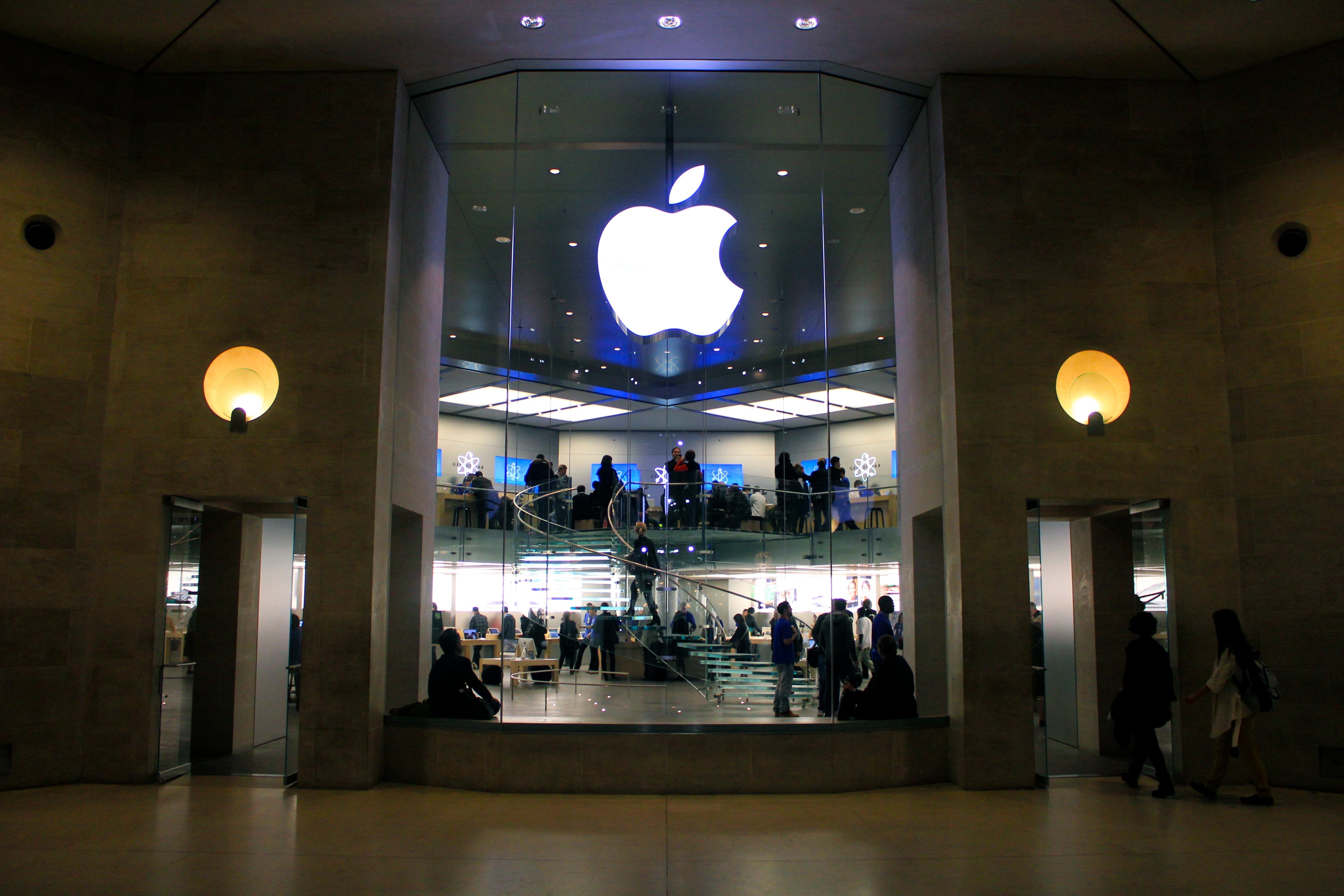Should you follow Warren Buffett into Apple? No.
Before getting into the reasons for that conclusion, let’s review Buffett’s views on investing in technology companies. Back in the 1990s, he said that he would not invest in his friend, Bill Gates’s Microsoft because he did not understand the industry.
That proved to be a wise decision on Buffett’s part since Microsoft stock peaked in December 1999 at about $58 and has never regained that high. The stock has done well though, surging to about $50 since it bottomed out at $17 in January 2009 — long after Gates left the CEO slot there.
Buffett has since changed his mind.
In May, he followed up a costly bet on IBM — estimated to be underwater by at least $1 billion — by letting “one of his deputies” make a $1.1 billion bet on Apple. I have written for the last three years that Apple’s best days are behind it, and indeed by June 2 its shares traded 28% below their May 2015 all-time high after it suffered declining sales in its most recent quarter.
But let’s give bulls a place in the debate here. Steve Wallman, a money manager in Middleton, Wisconsin told Bloomberg that Buffett’s bet on Apple is “A no-brainer. The company is cheap. It has a boatload of cash.” Wallman was right about the cash — Apple reported $55.3 billion in cash at the end of March 2016.
But is Apple cheap? Wallman obviously believes that’s true.

If Apple’s earnings grow faster than expected — say at 15% compared to its current Price/Earnings ratio of 10.45 — then its shares will indeed look inexpensive. But what if Apple continues to shrink for the rest of 2016 and is not able to come up with a new product that will make up for the slowdown in its iPhone business in China, which fell 26% in the first quarter — contributing to Apple’s 22% plunge in net income?
Will Apple make up the difference in India?
In May, Apple — which has a mere 2% of the Indian smartphone market — was blocked from selling used iPhones in India. That would have helped Apple to make money selling iPhones at a lower price.
Will Apple make enough revenue and profit from a TV, mobile payments, or a car?
Probably not. It has been working on a TV for years, with limited success and mobile payments in an industry with low margins. For example, Square suffered a negative net margin of 26% in the most recent quarter — and intense competition.
I am particularly skeptical of Apple’s prospects for getting growth from cars. That was triggered by Morgan Stanley’s May prediction that cars will add $400 billion to Apple’s top line by 2030 — getting 16% of the $2.6 trillion “shared mobility” market (the same share as its smartphone share).
I do not think that will happen for two reasons: Apple lacks the capabilities to compete in the car industry and incumbents are not going to give up their market share without a fight.
To be fair, Apple has the largest market capitalization for a reason — it was able to build four capabilities that enabled it to carve out a significant share of three crowded industries in a row. Specifically, Apple’s iPod took share in the MP3 player market; its iPhone took a big piece of the cell phone market; and its iPad gained tablet prominence. In each industry, Apple used capabilities in hardware design, marketing, supply chain, and content partnering to win significant share.
While cars are a huge industry in which Apple does not compete, the skills needed to design, manufacture, distribute, and service a handheld device are very different than what it takes to do the same for a car. Apple is reportedly taking some steps aimed at developing a car such as investing $1 billion in a Chinese ride-sharing company and hiring 1,800 people by 2019 for a rumored Project Titan.
But Apple faces powerful incumbent automobile makers that control huge chunks of the market already. According to Statista, these rivals include General Motors (17.7% 2014 U.S. market share), Ford (14.5%), and Toyota (14.5%). Moreover, many of these companies are taking steps to adapt to the shared mobility market already. Ford and GM are among the incumbents that are following in the footsteps of Daimler and BMW in setting up subsidiaries to target the shared mobility market, according to Frost & Sullivan.
Meanwhile Apple faces increasing woes in China. Regulators there shut down its iBooks and iTunes Movies stores and its products are being subjected to security reviews to see whether the data encryption and data storage inside Apple’s products “pose potential security threats to the country and its consumers.”
How long will Apple investors have to wait before it can turn a 22% net income plunge to, say, 15% profit growth? Cook has had nearly four years to demonstrate that he can replace the revenues lost as the iPhone matures. I don’t think he will be able to do that and therefore Buffett will lose money on his Apple investment.
How do you think Apple can grow?


























